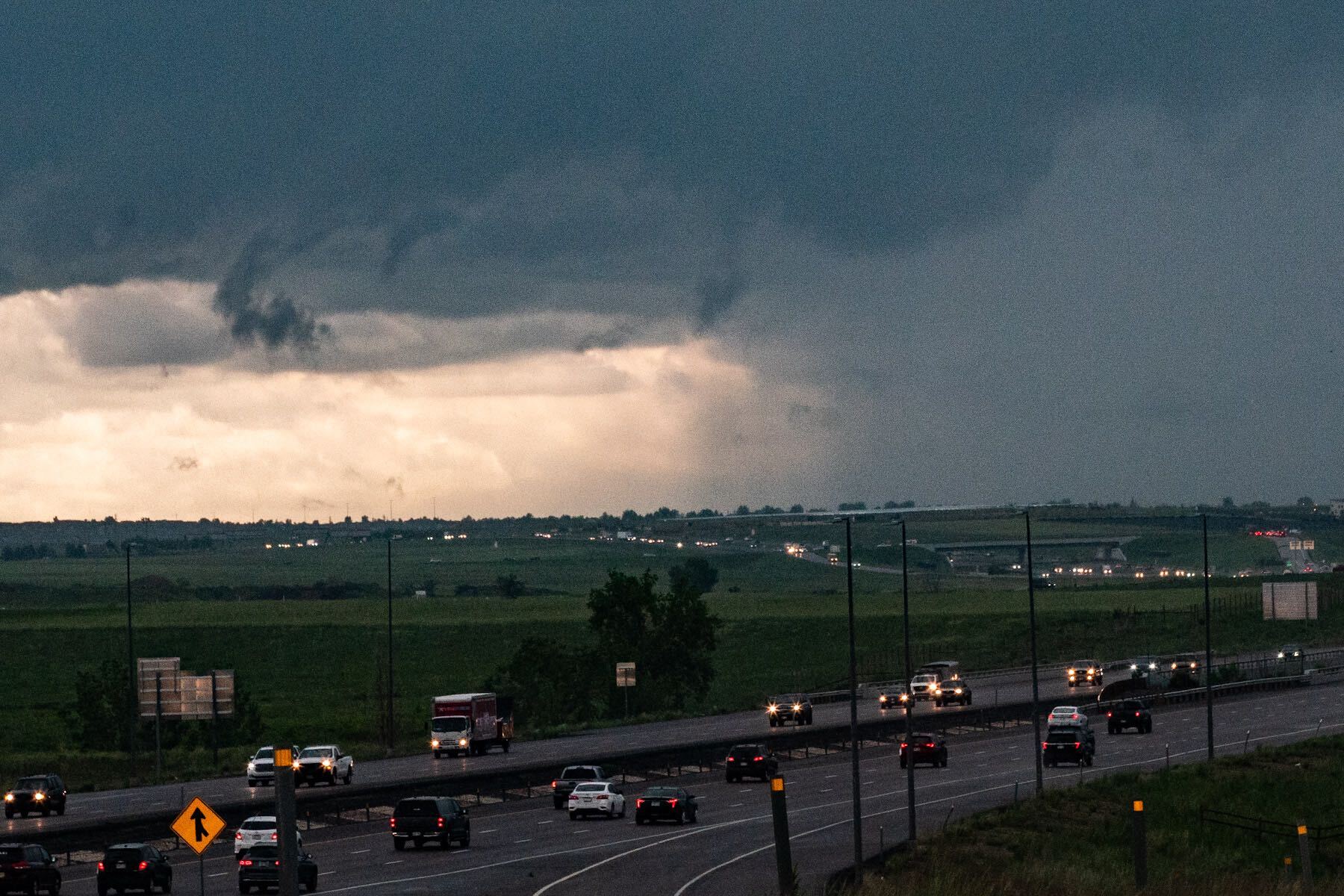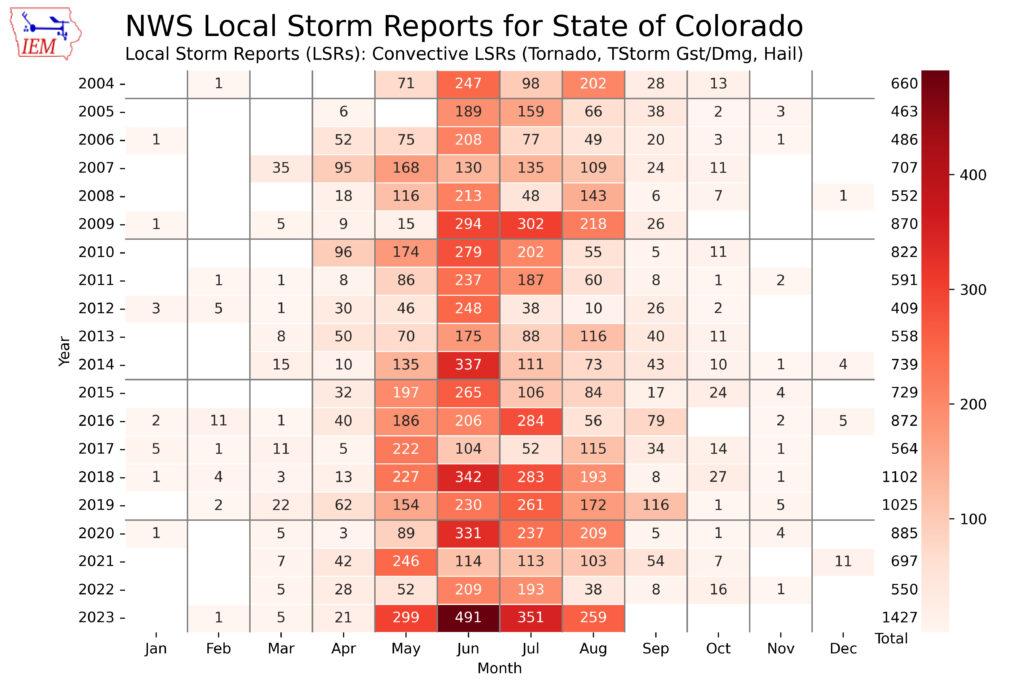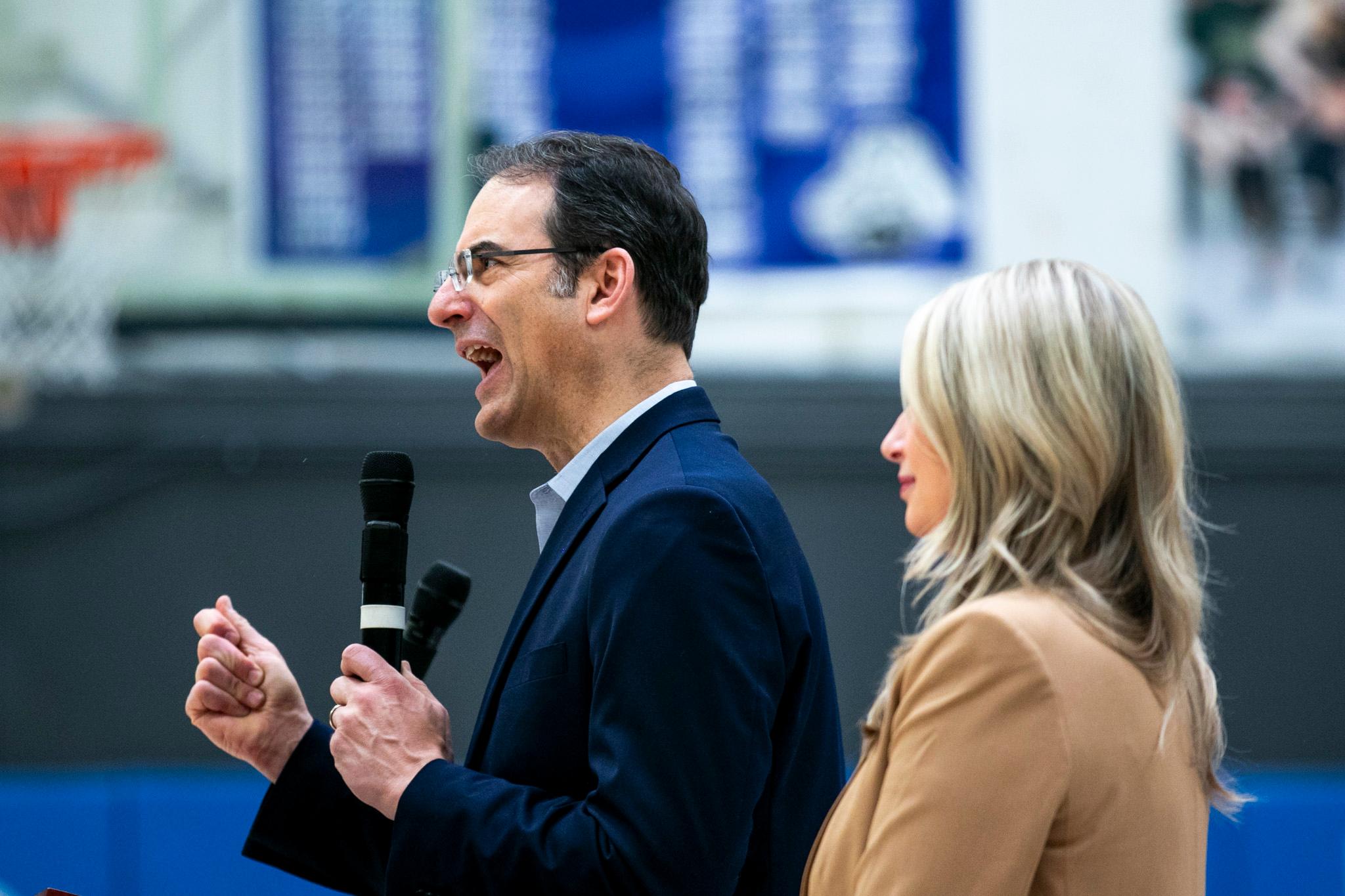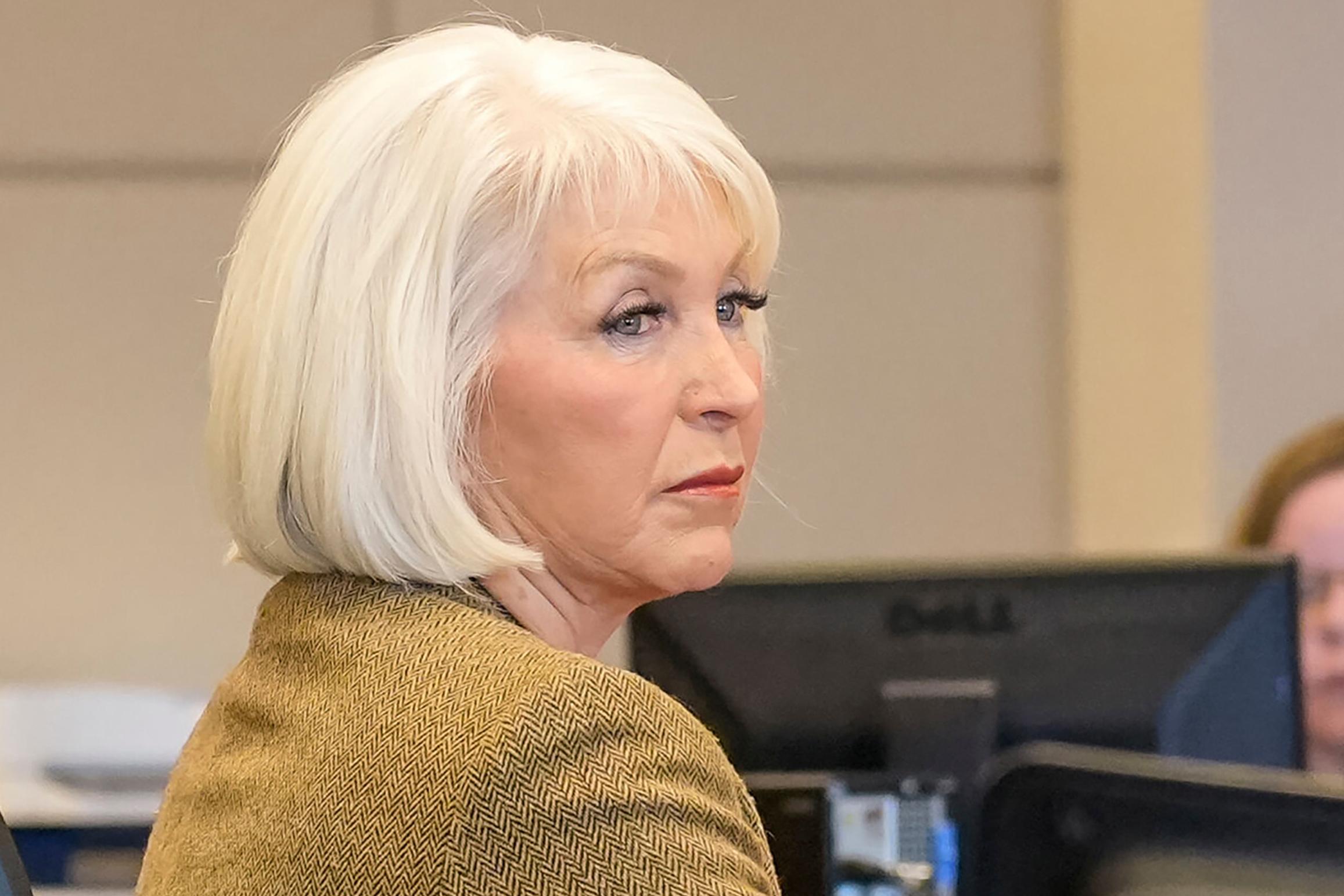
Dear Coloradan, if this summer’s weather has felt like a wild ride, it’s for good reason.
The state has seen around 1,400 storm reports this year — versus just 500 or so in 2022. Think hail, thunderstorms and twisters.
“In early May, we had 26 tornado warnings in one day, which was more than I issued for all of last summer,” Denver7 Chief Meteorologist Mike Nelson told Colorado Matters.

A northwesterly jet stream flow is the culprit, Nelson explained, which brought cold fronts.
“And with those cold fronts, we get severe thunderstorms.”
Hailstones pelted concertgoers, for example, at Red Rocks on June 21. Hail remains Colorado’s most expensive insured catastrophe.
Rollercoaster weather continued this week. At its start, temperatures kissed 99 degrees in Metro Denver. The heat forced kids from classrooms. A temperature of 73 degrees in Denver was the warmest morning low ever in the month of August.
“And it was second to 77 degrees set on July 3, 1881,” Nelson added.
And now? Well, now the remnants of Tropical Storm Harold bring rain and cooler temperatures.
With a month left in summer, Nelson is not prepared to prognosticate on fall and winter. Nor are many of his colleagues. The reason: A massive El Niño developing in the Pacific Ocean.
“It’s kind of a crapshoot as to what’s going to happen because the Pacific is a big place and exactly where that pool of warm water sets up changes how the jet stream flows,” Nelson said.
Two notorious blizzards hit Colorado in previous El Niño years — 1997 and 2003.
“So it may be that we’ll get one big snowfall this year.”
But Nelson says climate change simply adds too much uncertainty to make a solid prediction.
CPR's climate and environment editor Joe Wertz contributed to this report.








